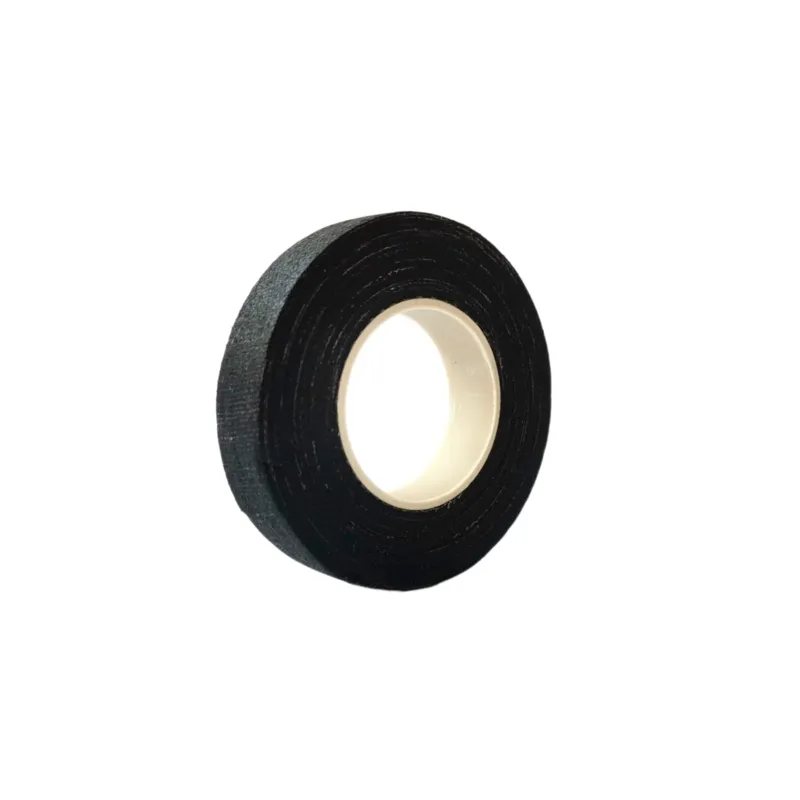Understanding Rubber Electrical Tape and Its Applications
Rubber electrical tape is a crucial component used in various electrical and automotive applications. Known for its superb insulating properties, rubber electrical tape serves as a reliable solution for electrical insulation, splicing, and wrapping. Its unique composition offers flexibility, durability, and resistance to weathering, making it ideal for both indoor and outdoor use.
Composition and Characteristics
Rubber electrical tape is typically made of a rubber polymer base, which gives it excellent elasticity and conformability. This is vital as it allows the tape to adhere well to surfaces, creating a tight seal that helps prevent moisture and dirt from entering electrical connections. Another characteristic of rubber electrical tape is its resistance to heat, wear, and ozone, enabling it to withstand harsh conditions without degrading.
The adhesive used in rubber electrical tape also contributes to its effectiveness. It is engineered to provide a strong bond while allowing for easy removal when necessary. This is particularly useful for temporary installations or repairs where a permanent solution is not required.
Applications
One of the primary uses of rubber electrical tape is in electrical wiring
. It is commonly employed to insulate electrical wires and connections, ensuring that current flows safely without the risk of short circuits or electrical fires. The tape's elasticity allows it to stretch and conform to various shapes, making it suitable for a wide range of applications, from household wiring to industrial settings.In addition to insulation, rubber electrical tape is also used for splicing wires together. When joining two wires, it is essential to cover the connection with tape to prevent exposure, which could lead to electrical hazards. Rubber electrical tape provides a reliable solution for this purpose, as it effectively seals the joint while maintaining electrical integrity.
rubber electrical tape

Another important application is in automotive repair. Rubber electrical tape is often used to wrap exposed wires in vehicles, protecting them from moisture, dirt, and abrasion. Given the environment in which cars operate, having a durable and weather-resistant tape is essential for ensuring the longevity of electrical connections.
Advantages of Rubber Electrical Tape
One of the primary benefits of using rubber electrical tape is its high level of insulation. Electrical insulation is critical for safety, and rubber's natural properties make it an outstanding insulator. Additionally, rubber electrical tape can handle a wide range of temperatures, making it versatile for use in different climates.
Another advantage is its durability. Unlike other types of tape, rubber electrical tape doesn’t break down easily when exposed to sunlight, heat, or other environmental factors. This ensures that applications remain stable and effective over time.
Furthermore, rubber electrical tape is easy to apply. Its flexibility makes it simple for users to wrap around wires and connections securely. Its adhesive backing allows for a quick and efficient application, minimizing installation time while ensuring safety and effectiveness.
Conclusion
In summary, rubber electrical tape is a vital tool in electrical and automotive applications, providing essential insulation and protection for wires and connections. Its unique properties make it an ideal choice for both professionals and DIY enthusiasts. Whether you’re looking to insulate wiring in your home, protect automotive electrical systems, or simply carry out electrical repairs, rubber electrical tape stands as a reliable solution that guarantees safety and functionality. With its numerous advantages and diverse applications, rubber electrical tape continues to play an indispensable role in modern electrical endeavors.
-
XIANGFAN Rubber Tape-Ultimate Solutions for All Your Insulation NeedsNewsJun.24,2025
-
XIANGFAN Rubber Tape-Protection for Industrial and Residential ApplicationsNewsJun.24,2025
-
XIANGFAN Rubber Tape: Superior Safety and Sealing for Demanding EnvironmentsNewsJun.24,2025
-
XIANGFAN Rubber Tape: Reliable Solutions for Every Electrical ChallengeNewsJun.24,2025
-
XIANGFAN Electrical & Industrial Tape: Powering Reliability Across IndustriesNewsJun.24,2025
-
XIANGFAN Electrical & Industrial Tape: Excellence in Every ApplicationNewsJun.24,2025
